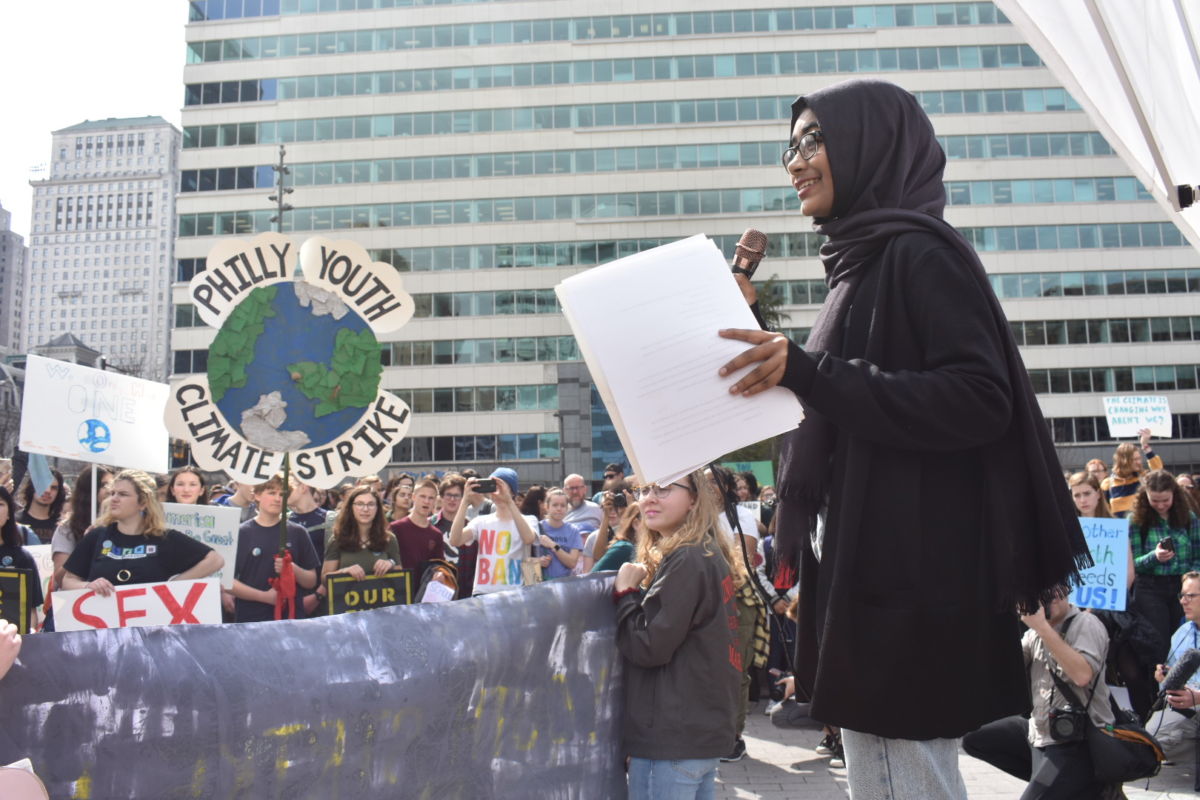
Sabirah Mahmud speaks at the Philadelphia Youth Climate Strike in March 2019.YOUTH CLIMATE STRIKE
This crisis will take away our ability to live unless we do something,” Sabirah Mahmud, a 16-year-old youth climate organizer, told me earlier this month.
I had invited Mahmud — the Pennsylvania director for Youth Climate Strike, a national youth-led organization committed to climate justice for marginalized communities in the U.S. and globally — to share her thoughts on the climate crisis. As we sat together on a shaded patio in West Philadelphia in the muggy September weather, Mahmud turned to me with a look of determination on her face and explained why youth leadership is essential for the climate justice movement.
“We have a right to a future, and now that future is in jeopardy,” she told me. “We have all of these big dreams and we are always being asked: ‘What do you want to do in the future?’ I can’t have a response to that question because of this crisis. I don’t even know if we will have a future or what kind of future that will be.”
Alongside Mahmud are hundreds of other youth climate organizers in Pennsylvania who are striking from school as part of Fridays for Future, taking to the streets in acts of dissent against the fossil fuel industry, developing protest art, educating the public, and demanding decision-making power in domestic and international deliberations about the fate of the planet.
Reil Abashera, a 16-year-old high school student and resident of Philadelphia, decided to join the struggle when she learned of the scientific reality of the climate crisis and understood the urgency of this moment.
“We don’t have 10 years to turn things around,” Abashera told me. “We have 18 months.”
The fact that these conversations are taking place in Philadelphia is not insignificant. The “City of Brotherly Love and Sisterly Affection” has a long history of environmental racism that goes hand in hand with its history of state violence against Black people, disinvestment in public education, the criminalization of poverty and the segregation of communities of color. According to the Public Interest Law Center, low-income neighborhoods and communities of color in the city have long been disproportionately impacted by air pollution from oil and gas operations. This air pollution has resulted in increased rates of childhood asthma, cancer, depression and schizophrenia for many Philadelphians. As recently as July 2019, Philadelphia’s City Council approved the construction of a $60 million LNG plant in South Philadelphia — a section of the city already heavily impacted by environmental toxins. Mahmud and her peers, along with youth organizers from the Sunrise Movement, were actively involved in the fight against the LNG plant. They took part in street demonstrations, elevated dissenting voices from South Philadelphia, and attended public consultations organized by the city government. MORE


